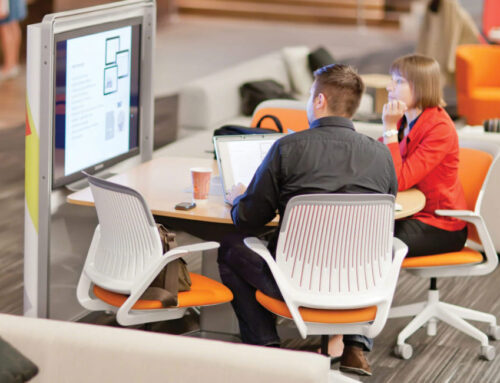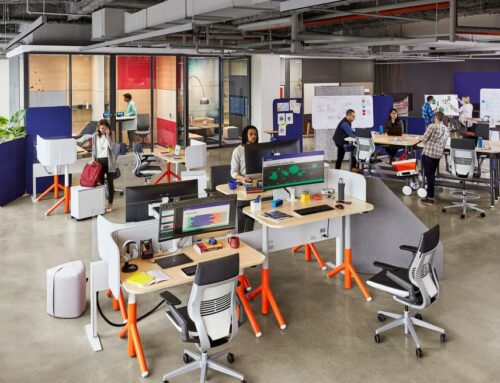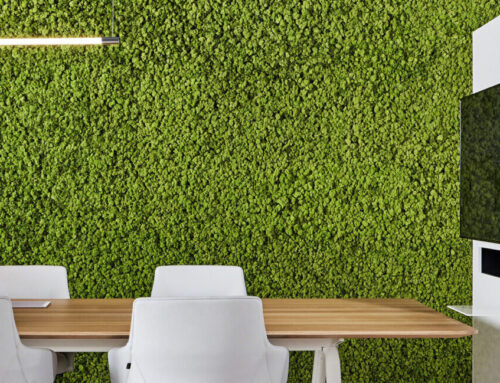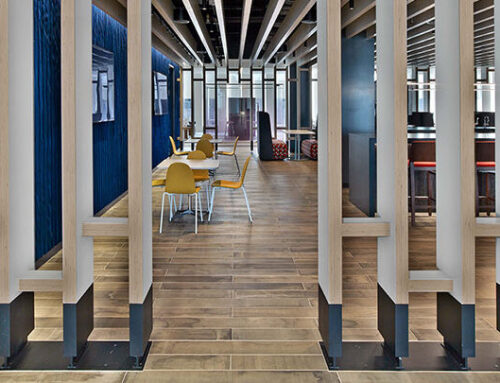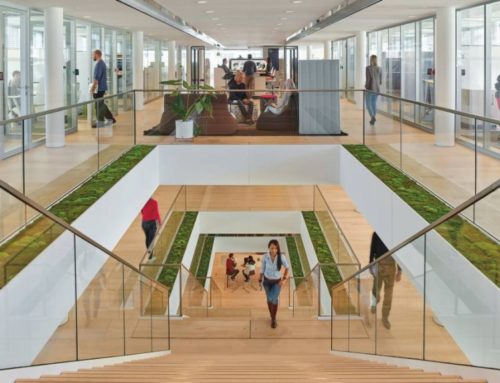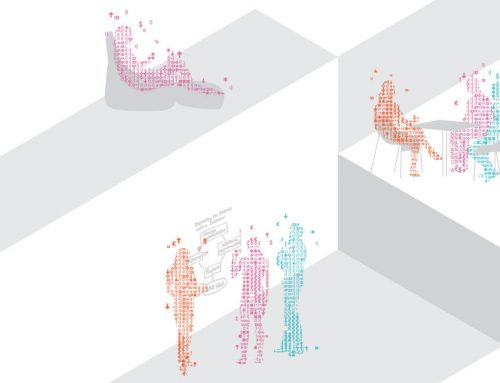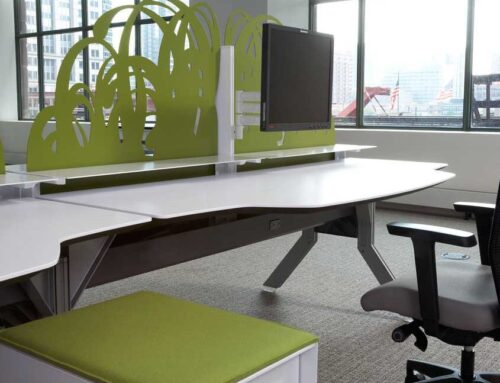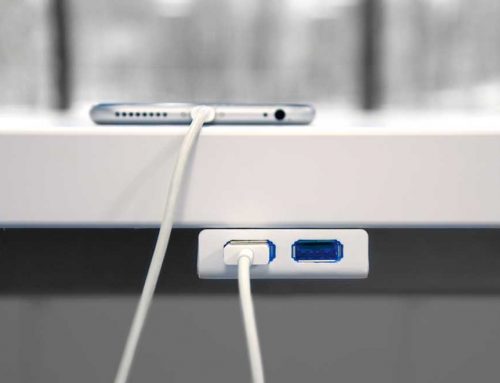Open Plan Offices and Hot-desking Impacting Workplace Satisfaction and Engagement
Space and cost-saving strategies such as open plan offices and hot-desking could be impacting workplace satisfaction and engagement, according to new insights from Steelcase, the leading provider of workplace solutions.
UK employees are falling below the global average for almost all workplace satisfaction metrics, reporting a lack of control over their work environment (59 per cent), difficulties concentrating (43 per cent) and an inability to work without being interrupted (50 per cent). These three factors were found to be central to fostering an engaged and satisfied workforce.
The Steelcase study – a result of data collected from over 12,000 workers in 17 countries by global research firm Ipsos – found that almost half (49 per cent) of UK workers are based in open plan offices; more than twice the global average (23 per cent). Meanwhile almost one in five (17 per cent) don’t have a fixed work location – due to hot-desking or nomadic working – compared to just eight per cent globally.
With real estate costs in the UK – and particularly London – amongst the highest in the world, open plan offices and hot-desking are tried and tested ways of keeping overheads down. Open plan working ensures space is used as efficiently as possible, without the need for walls or partitions. Hot-desking enables businesses to retain less space overall through encouraging staff to work remotely.
But there are signs that all is not well for UK workers, who report among the lowest engagement and workplace satisfaction levels in the world, ranking 12th out of 17. Just 29 per cent of UK workers are engaged, compared to 34 per cent globally and as many as 53 per cent in India, 44 per cent in Mexico and 44 per cent in South Africa.
“While open plan offices and hot-desking have their benefits, there is evidence that they are contributing to lower levels of engagement and workplace satisfaction in the UK, through limiting the control employees have over their work environment,” commented Bostjan Ljubic, VP Steelcase UK & Ireland. “We have consistently found that the most engaged workers are those who have more control over their work environment, including the ability to concentrate easily and work in teams without being interrupted. To cater to these needs, employers should provide a range of working environments, including private spaces, meeting rooms and informal break-out areas, to suit different styles and types of work.”
Across the global findings, nearly nine in ten (88 per cent) highly engaged employees report flexibility over how and where they work. A further 88 per cent of highly engaged employees say they can concentrate easily, and 94 percent say they can work in teams without being disrupted.
“Studies have shown that engaged employees are more productive, innovative and loyal, yet many organisations are failing to address the broad range of factors that can influence engagement – including workplace design,” continued Ljubic. “Every employee is different, just as every role and every working day are different – therefore the work environment must flex to these changing needs. Our research shows that a range of spaces, designed for a range of work styles and combined with the right technology, is the most effective approach for businesses who want to get ahead.”
Let AFD, design a open office floor plan that helps make your work space more productive, increases efficiency and worker satisfaction. Our Office Furniture Design Experts are here to help. Call us.



